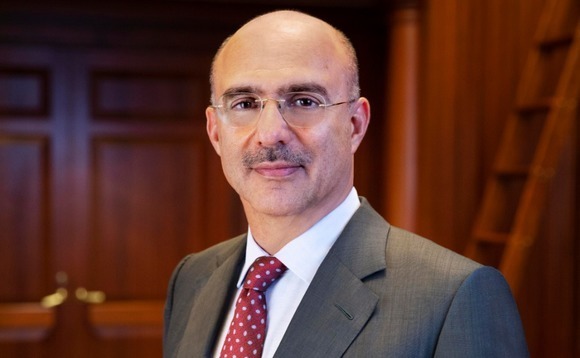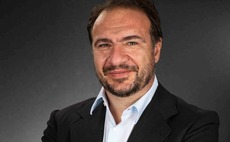
Investcorp: Into Asia

Investcorp entered the region last year through a fund commitment in China and the acquisition of an alternative investment platform in India. The firm’s top executives explain the rationale
It appears to be a case of when, not if, Investcorp opens an office in mainland China. What they haven't decided is whether it should be in Beijing or Shanghai.
In the past 12 months, the Bahrain-listed fund manager has made its debut investments in China and India, playing it safe by partnering with established local players. An India presence came ready-made with the acquisition of IDFC Alternatives' private equity and real estate funds business. In China, Investcorp backed a technology fund operated by China Everbright, but this represents only the start of what is intended to be a deep relationship with the country.
"These are different approaches to two very different markets, but the objective is the same – to have a physical presence in each of those geographies. I think not long from now we will need to have a presence in mainland China," says Mohammed Alardhi (pictured), the firm's executive chairman. "I would like to see Investcorp do in Asia what it already does in North America: private equity, real estate, and credit. We like our experience so far, we like our partners, and we have good advisors."
The origins of Investcorp's push into Asia can be traced to the 2015 declaration of an ambitious goal to become one of the world's largest alternative investment managers. The initial plan was to grow global assets under management (AUM) from $10 billion to $25 billion within seven years. Having reached $22.5 billion by the end of 2018 – thanks in large part to the purchase of 3i's $11 billion credit business in 2017 – the medium-term target has been pushed out to $50 billion.
Alardhi stresses that the vision is about more than just AUM. Investcorp wants to establish a global distribution system, with the ability to raise money out of Asia, Europe, and North America as well as its longstanding investor base among the Gulf Cooperation Council (GCC) members. The firm also wants to diversify its business. A private equity strategy has been in place since Investcorp's inception in 1982, with real estate and hedge funds added in 1995 and 1996, respectively.
Credit arrived with the 3i acquisition and the firm has since moved into infrastructure and secondaries, launched a business that acquires stakes in other GPs, and taken a 40% interest in Banque Pâris Bertrand Sturdza, a Swiss private bank. These initiatives tend to be based on partnerships: a GCC infrastructure fund was set up with Aberdeen Standard Investments; a team that spun-out from Credit Suisse is raising a vehicle that will back mid-size alternative asset managers; and HarbourVest Partners and Coller Capital are helping on secondaries.
Launching pad
Investcorp established an Asia base in 2017 by opening an office in Singapore. It served a dual-purpose. "Once we started using our presence in Singapore we developed a deeper understanding of the country around China. There is a lot of wealth and investing capability in Singapore, Indonesia, and Brunei to a certain extent," says Alardhi. "We found that we could distribute our products in those countries as we learned how to get into Asia [from an investment perspective]."
However, the decision to enter China through the China Everbright New Economy Fund represents a nod to Investcorp's longstanding technology exposure. The firm's first investment in the sector came in 1989 and more than $1 billion has been raised since 2001 across three dedicated technology funds. It claims to have invested at least $500 million a year in technology and technology-related businesses for the past decade. A bigger concern was picking the right group to work with.
"Partnering with a quasi-sovereign vehicle is probably one of the safest ways to approach the China market. We've heard horror stories about foreign investors going solo in China and getting their fingers burnt," says Hazem Ben-Gacem, Investcorp's co-CEO. "Everbright is Hong Kong-based, publicly listed, and has good governance – we felt they were closest to us in terms of business ethics and operations. You want a common mindset and approach to investing."
Last September, Investcorp said it would commit $150 million to the fund with an additional $100 million for co-investment. The vehicle – which closed at $480 million – has already backed the likes of iQiyi, Meituan-Dianping, Wish, SenseTime, and Miss Fresh. Asked about whether late-stage tech valuations in China are sustainable, Ben-Gacem observes that it is best to keep an open mind, pointing to Investcorp's previous success in growth capital and its willingness to be patient.
"A large part of it is the point in the economic cycle. We feel late-stage tech in China provides the highest risk-adjusted return. And whatever the valuations in China, the US is twice as high," he adds. "China's stock market had a difficult 2019 and depressed valuations have been factored into entry points, but the macro fundamentals of the businesses we are investing in are off the scale. We are talking 80 million unique viewers per day. Any business doing that in the US is worth $100 billion."
Direct approach
While the firm made a conscious decision to work with an affiliate of a state-owned enterprise in China, it took the opposite approach in India. "We were advised to stay away from anything that has a lot of government involvement because that's where the complexity is," says Alardhi. "When there are regulatory reforms you can't be sure what changes will come."
The other imperative for India was to go direct, and it happened that the IDFC Alternatives platform was available. Investcorp was presented with a readymade platform comprising two funds in real estate credit and two in private equity, as well as a team of 20 investment professionals with on-the-ground experience. The second PE fund, which was launched prior to the acquisition, will close at $200 million in June, while a new real estate credit vehicle of $125 million is in the works. The goal is to reach $1.5 billion in AUM for India within five years.
"The track record is compelling, and the macro story is good. We find there are relatively few credible institutions in the middle market space – people are hesitant with local partners," says Ben-Gacem. "But taking the Investcorp governance to a team in Mumbai, we find that resonates with global investors that want to dip a toe in the Indian market."
PE and real estate will remain the focal points for the time being, although technology may also feature at some point, as echoes of the trends prevalent in China play out in India. Beyond that, just as the firm hopes to apply its skills in the region, it is keen to take something out as well. Alardhi draws comparisons between the Gulf and India, suggesting there might be complementary trends at work there as well.
"The proximity of the Gulf and India could bring some advantages to us, bridging and bringing businesses from one to the other," he says. "There is a lot that can happen in the future and Investcorp can play a role."
SIDEBAR: Fundraising - Flexibility first
As Investcorp has added to its portfolio of strategies, the firm has widened its scope of investors. The LP base started to become more international and institutional with the launch of the hedge funds business in 1996. Investcorp's traditional Gulf Cooperation Council (GCC) clients now account for less than 30% of assets under management (AUM). A total of $7.3 billion was raised for the 12 months ended June 2018, three-quarters of it for credit. The GCC contribution was around $1 billion.
Yet the bulk of the capital sourced from the Gulf still goes into a wealth management platform that caters to ultra-high net worth individuals (UHNWIs) who participate through committed programs or on a deal-by-deal basis. Some institutional investors take the same approach. Investcorp sources opportunities, underwrites them using its balance sheet, and figures out who can take part.
Just over $1 billion of the $2.8 billion invested across all asset classes in the 2018 financial year was deal-by-deal placement. Private equity AUM – excluding the balance sheet contribution to transactions from Investcorp itself – was $4.1 billion last December. More than two-thirds was in deal-by-deal investments.
"We try to offer all our products as a plain vanilla fund and carve out pieces that we can customize for UHNWIs or endowments or family offices that need a bespoke solution," says Hazem Ben-Gacem, Investcorp's co-CEO. "A single investment could end up in multiple products. No other private equity firm has mastered that formula for tapping multiple investor bases with multiple appetites for the same investments."
The firm's investment last year in Banque Pâris Bertrand Sturdza, a Swiss private bank, is part of a broader effort to take the wealth management platform global. While the likes of The Blackstone Group want to venture into the retail investor space, while retaining their traditional institutional following, Investcorp has traveled in the opposite direction.
The firm sees secondaries as the next stage in its evolution – and making private equity quasi-liquid is the goal. Last year, Investcorp teamed up with Coller Capital on a $1 billion restructuring that involved transferring several European assets acquired on a deal-by-deal basis into a new fund, facilitating an exit for the existing investors. It also worked with HarbourVest Partners to establish a $185 million continuation fund that absorbed two positions from a legacy technology fund.
"We want to offer our clients, on a yearly basis, the option and flexibility to trade in and out of their positions at mark-to-market valuations. We have our own balance sheet, of over $2.5 billion, that we can use to act as a market maker," Ben-Gacem adds.
Latest News
Asian GPs slow implementation of ESG policies - survey
Asia-based private equity firms are assigning more dedicated resources to environment, social, and governance (ESG) programmes, but policy changes have slowed in the past 12 months, in part due to concerns raised internally and by LPs, according to a...
Singapore fintech start-up LXA gets $10m seed round
New Enterprise Associates (NEA) has led a USD 10m seed round for Singapore’s LXA, a financial technology start-up launched by a former Asia senior executive at The Blackstone Group.
India's InCred announces $60m round, claims unicorn status
Indian non-bank lender InCred Financial Services said it has received INR 5bn (USD 60m) at a valuation of at least USD 1bn from unnamed investors including “a global private equity fund.”
Insight leads $50m round for Australia's Roller
Insight Partners has led a USD 50m round for Australia’s Roller, a venue management software provider specializing in family fun parks.







